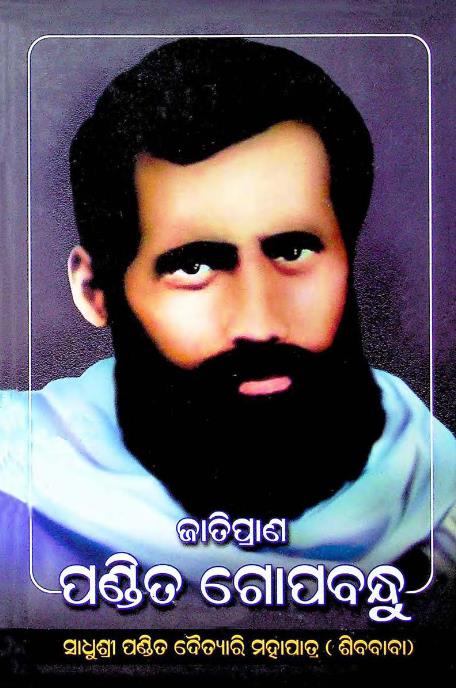In the annals of Odisha’s rich heritage, the name Gopabandhu Das affectionately known as Jatipran Pandit holds a prestigious position. Born on 9th October 1877 in the humble village of Satyabhamapur, Gopabandhu’s legacy transcends mere historical significance. He was an educationist, a freedom fighter, a poet, and a social reformer whose work significantly shaped Odia culture and identity.
Gopabandhu’s early life was marked by grace and hardship. Raised in a modest family, he learned the values of perseverance and scholarship from his parents. His quest for knowledge began at a local school, and he later attended the prestigious Cuttack Collegiate School, where he displayed remarkable brilliance. His deep-rooted love for literature and education would later inspire countless Odias to pursue their dreams.
In 1906, Gopabandhu established the Satyabadi School, which emerged as a beacon of learning in Odisha. His innovative approach to education was to impart values along with academics. At Satyabadi, he introduced a curriculum rich in Odia literature and culture, encouraging students to take pride in their heritage. The school celebrated its first cultural event in 1908, showcasing plays and recitations that fostered a sense of community and collective identity among the students.
Gopabandhu was not just an educator; he was deeply committed to social reform. He recognized the rampant injustices in society, particularly the caste system and poverty that plagued the rural population. His writings and speeches often called for social equality and upliftment of marginalized communities, making him a vocal advocate for social justice in an era marked by discrimination.
A significant turning point in Gopabandhu’s life was his involvement in the Indian independence movement. Inspired by the freedom struggle, he utilized his literary prowess to fuel revolutionary fervor among the masses. He started a newspaper, Sambadika, which became a platform for raising awareness about political and social issues. His writings encouraged Odias to unite against British colonial rule and fight for their rights.
Gopabandhu’s legacy isn’t solely defined by his educational initiatives or political activism; it is profoundly imbued in his literary contributions. His poems and essays reflect his thoughts on nationalism, culture, and the human condition. Despite facing numerous challenges, including health issues, he remained resilient; his passion for literature and the upliftment of society never wavered.
Unfortunately, Gopabandhu’s life was cut short when he passed away at the age of 50 on 17th July 1928. Yet, his influence was everlasting. Posthumously, he has been venerated as a national hero in Odisha, and various institutions, roads, and awards have been named in his honor.
Today, Gopabandhu Das is remembered not merely as a historical figure but as a symbol of resilience, creativity, and dedication to societal progress. His vision for an educated and equitable Odisha continues to resonate, inspiring generations to strive for excellence while upholding their cultural roots. In the course of Odisha’s march towards modernity, Jatipran Pandit Gopabandhu Das remains a pivotal figure whose life and works illuminate the path of hope and transformation.
Books Info
| Books name | Jatipran Pandit Gopabandhu/ଜାତିପ୍ରାଣ ପଣ୍ଡିତ ଗୋପବନ୍ଧୁ |
| Author | Daityari Mahapatra |
| No Of pages | 286 |
| Publisher | Chinmaya Prakashan |
| Publication | 2007, 2010, 2e. |
| Printed At | Kalia Printers |
| Distributor | NA |

